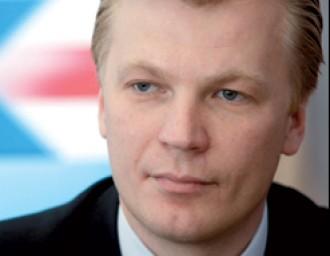Belarusan civil society may find itself locked out of EDM program, Vital Rymasheuski says

European Dialogue on Modernization with Belarus may turn into a means of establishing contacts with the Belarusan government only, opposition politician warned at a meeting in Minsk on September 24.
The meeting with Gunnar Wiegand, the European External Action Service's director for Russia, the Eastern Partnership, Central Asia, Regional Cooperation and the OSCE, was attended by the leaders of major opposition parties.
Vital Rymasheuski, a co-chairman of the Belarusan Christian Democracy party and former presidential candidate, expressed fears that Belarusan civil society may find itself locked out of the program. "There's a danger that it may be reduced to a means of establishing contacts exclusively with the Belarusan government through a fairly small expert community," he said. The politician warned that it would not have the "desired effect."
"I believe that the process of cooperation in the framework of the Dialogue should be trilateral and as much open as possible. There should be control over this process on the part of civil society and the political opposition. Any declared goals, even the most generous ones, can be distorted," Mr. Rymasheuski said.
In a situation where "pro-democracy organizations are denied registration and experience total persecution, cooperation only through legal channels where funds provided for Belarus' democratization could be used by pro-government organizations such as Belaya Rus would be a complete mistake," Mr. Rymasheuski said.
Mr. Wiegand reportedly made clear at the meeting that the EU had made no final decision on the future of the Dialogue. "The EU would like to see progress in the situation in Belarus, the release of political prisoners, the improvement of the human rights situation. They are ready to establish cooperation with the government, but no decisions have been made," said Mr. Rymasheuski.
The meeting was also attended by Anatol Liabedzka, leader of the United Civic Party; Siarhei Kaliakin, leader of the Spravedlivy Mir (Just World) Belarusan Party of the Left; Belarusan Popular Front Chairman Aliaksei Janukevich; Iryna Veshtard, head of the Hramada Belarusan Social Democratic Party; and Yury Hubarevich, deputy chairman of the Movement for Freedom.
-
03.01
-
07.10
-
22.09
-
17.08
-
12.08
-
30.09








































